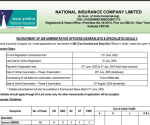7 essential abilities engineering firms prioritise in new graduate hires – Times of India

The engineering landscape has transformed dramatically, with employers seeking graduates who combine technical excellence with practical problem-solving abilities. Today’s successful engineers must navigate complex interdisciplinary challenges whilst adapting to rapidly evolving technologies. Here are seven critical skills that distinguish exceptional engineering candidates.
Technical proficiency with emerging technologies
Modern engineering demands hands-on expertise with cutting-edge tools and platforms. Employers prioritise candidates who demonstrate mastery of artificial intelligence and machine learning frameworks, advanced data analytics platforms, computer-aided design software, embedded systems programming, and cloud computing infrastructures.The key lies in developing practical experience through personal projects, internships, and collaborative research. Engineers should build portfolios showcasing real-world applications, demonstrating genuine competency in implementation and optimisation rather than mere theoretical knowledge.
Problem-solving and critical thinking
Engineering fundamentally revolves around solving complex, real-world challenges that often lack clear-cut solutions. Employers value graduates who can dissect intricate systems, identify root causes, and develop innovative approaches to overcome obstacles extending beyond academic problem sets.Developing this capability requires active engagement in case studies, competitive programming challenges, capstone projects, and research initiatives. The most compelling candidates articulate their problem-solving methodology, explaining how they approach unknown challenges and iterate towards effective solutions.
Communication skills
Technical brilliance means little if engineers cannot effectively convey ideas to diverse audiences. Modern engineering roles require clear communication with non-technical stakeholders, comprehensive technical documentation, and persuasive presentation of solutions to decision-makers.Strong communicators translate complex technical concepts into accessible language, write detailed reports that guide implementation, and present findings confidently to cross-functional teams. This skill becomes increasingly valuable as engineers advance, often determining leadership potential and project success.
Collaboration and teamwork
Contemporary engineering projects require seamless collaboration across disciplines, departments, and continents. Employers seek graduates who contribute effectively to diverse teams whilst respecting different perspectives and expertise areas.Evidence includes successful participation in group projects, leadership roles in student organisations, meaningful internship experiences, and cooperative education programmes. The ability to navigate team dynamics, resolve conflicts constructively, and leverage collective strengths distinguishes exceptional candidates from their peers.
Adaptability and learning agility
Technology evolution occurs at unprecedented pace, making continuous learning essential for engineering success. Employers prioritise candidates demonstrating intellectual curiosity and the ability to rapidly acquire new skills, tools, and methodologies as industry needs evolve.This adaptability manifests through diverse internship experiences, professional certifications, independent learning initiatives, and side projects exploring emerging technologies. The most valuable engineers approach unfamiliar challenges with enthusiasm, viewing change as opportunity for growth rather than obstacles.
Project management and organisational skills
Engineering success increasingly depends on effective resource management, timeline adherence, and strategic coordination of complex initiatives. Graduates who understand project lifecycle management, can prioritise competing demands, and maintain organisation under pressure provide immediate value to employers.Familiarity with project management methodologies, collaborative planning tools, and organisational frameworks demonstrates readiness for leadership responsibilities. This skill becomes particularly crucial in product development, research roles, and positions involving multiple stakeholder coordination across different departments.
Ethical reasoning and sustainability awareness
Modern engineering operates within increasing scrutiny regarding environmental impact, social responsibility, and ethical implications of technological advancement. Employers expect graduates to understand how their work affects broader society and make decisions balancing innovation with responsibility.This awareness encompasses sustainable engineering practices, regulatory compliance, safety standards, and corporate social responsibility principles. Candidates who articulate ethical dimensions of engineering decisions and propose solutions considering long-term societal impact demonstrate the maturity essential for responsible innovation in today’s interconnected world.
















